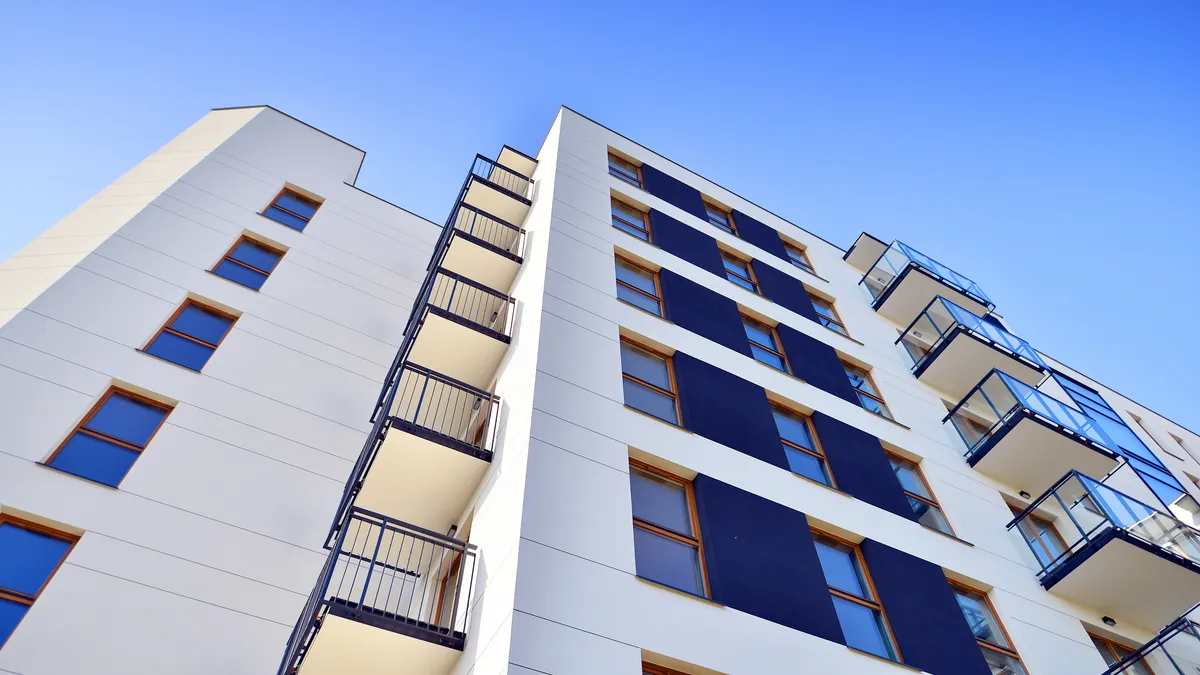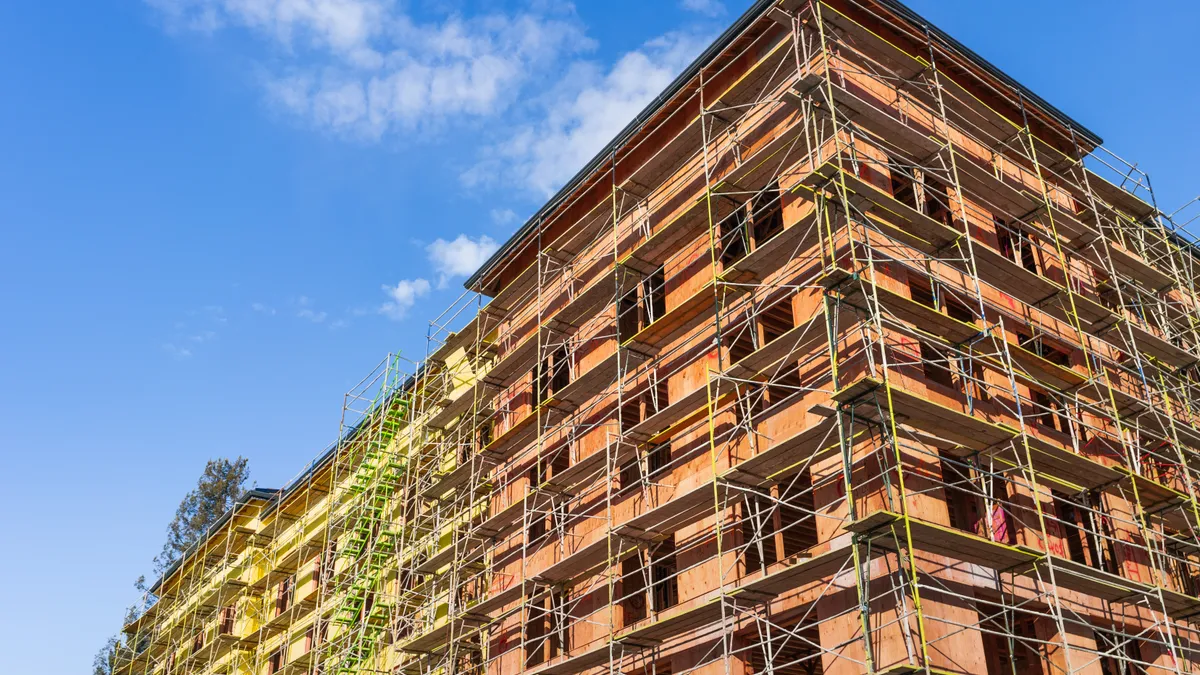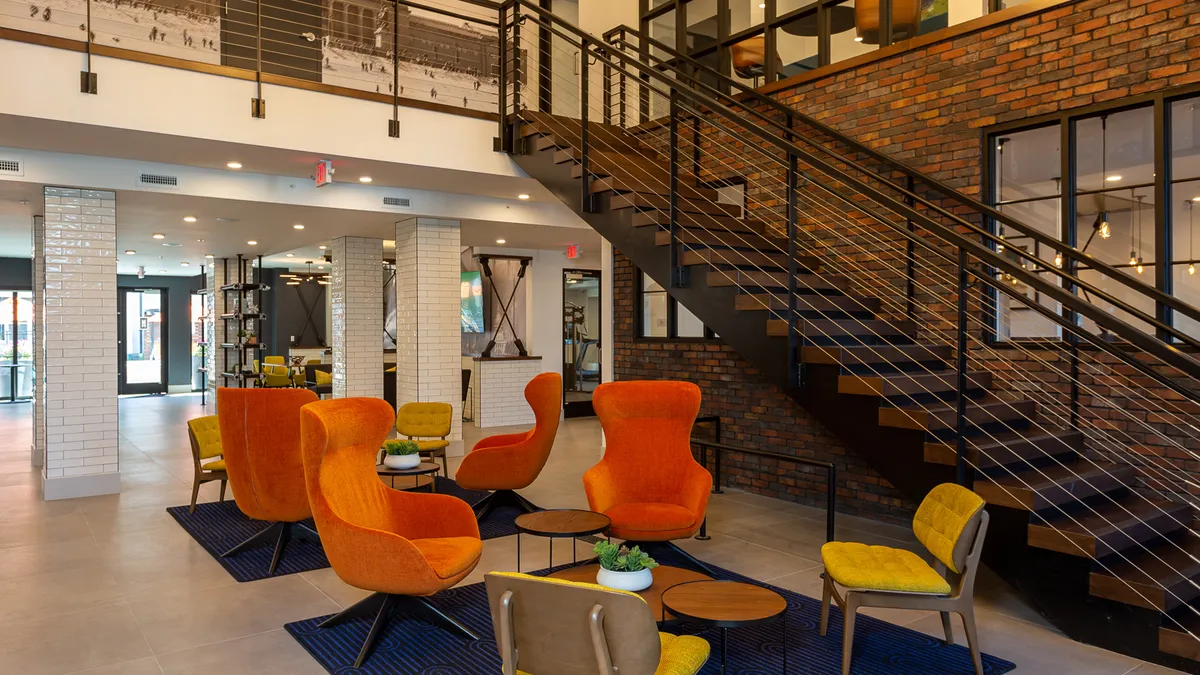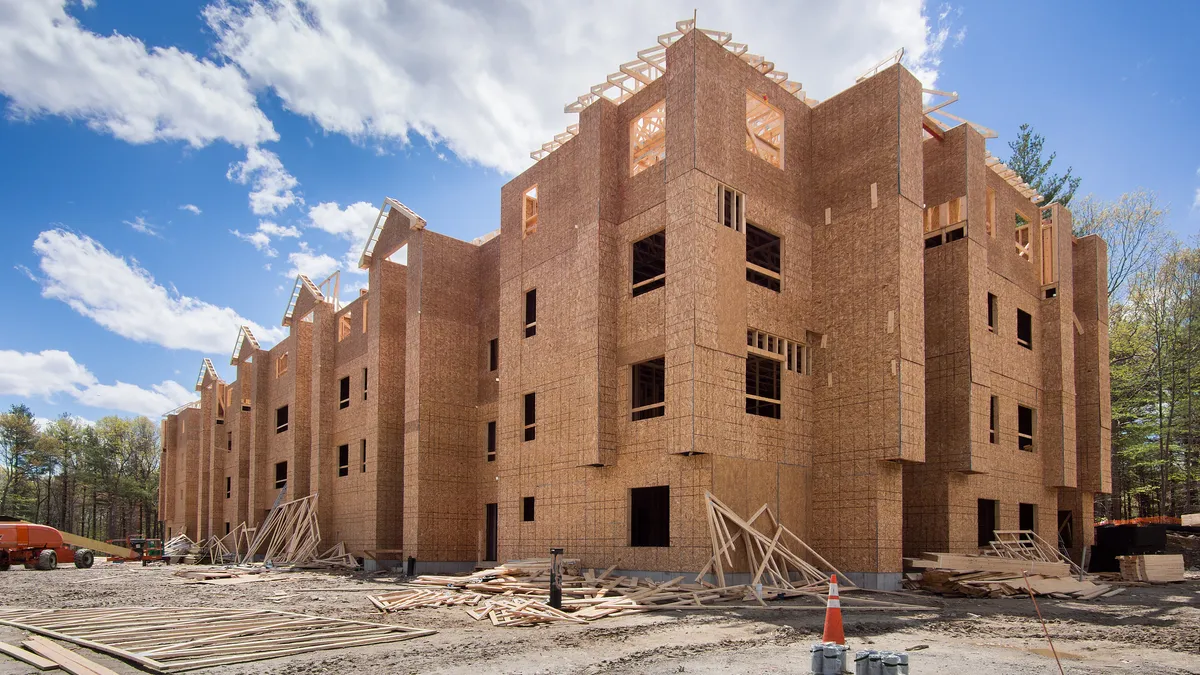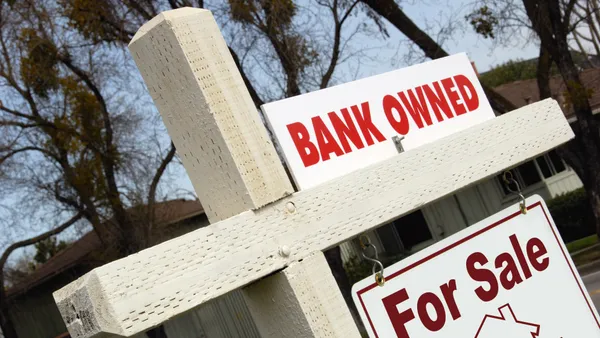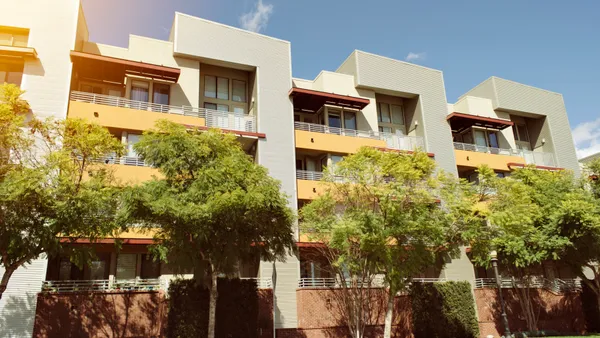Apartment sales fell 17% in 2022, according to MSCI. Though the final numbers for 2023 haven’t been released, they will no doubt be lower than 2022’s figure after transaction volume dropped each month of the year.
At this point, the question on investors' and brokers’ minds isn’t if things will get back to the halcyon pre-interest-rate-hike days of 2021 and early 2022. Nobody expects that kind of market anytime soon. They simply want to know when the sales market will start to thaw out.
After the Federal Reserve's December announcement that it will likely trim the federal funds rate from the current range between 5.25% and 5.5% to 4.6% by the end of 2024, multifamily leaders could get their wish and see deals start flowing again this year.
“I don't know that [sales volume] can possibly decline any more than it did,” Kyle Draeger, senior managing director of multifamily debt and structured finance at CBRE Capital Markets, said. “My view is that it is not going to go down. I think it will get better.”
But even as sales improve, rate cuts won’t paper over all of the issues that emerged during the past two years, leaving some types of properties primed for sales. Here are four things buyers and sellers can look for in the coming year.
Sellers will come off the sidelines
Shortly after the Fed’s announcement, the 10-year Treasury, a basis for multifamily loans, dropped below 4.0% — a level it hadn’t hit since July — after hitting its highest level since 2007 in October.
Josh Bodin, senior vice president of securities trading with New York City–based commercial real estate services firm Berkadia, thinks lower Treasury yields should lead to more deal activity, which has been hampered due to interest rate volatility. “Once yields stabilize, investors should have more clarity on their cost of capital and pricing, which should lead to more sales and refinancing activity,” he said.
A major impediment to sales over the last 18 months has been pricing. As borrowing costs have moved, gaps have emerged between buyers and sellers on the price of assets. If rates come down, consensus should be easier to find.

“A stable interest rate environment will help lenders and investors to become more closely aligned with the current state of capital markets, putting an end to the transaction halt that we have seen in the past months,” said Gerardo Mahuad, managing principal at Miami-based apartment owner and manager Eagle Property Capital, who recently closed a value-add fund.
With clarity on pricing, apartment owners who want to sell could come off the sideline. “The once-motivated seller, who became sidelined due to the rate environment and the cap rate environment, is now suddenly motivated again,” said Marc Pollack, managing director for multifamily for the New York portfolio at Dania Beach, Florida-based property management firm FirstService Residential.
Forced sales won’t go away
However, some owners won’t have the luxury of waiting for values to recover. Rising borrowing costs have put pressure on owners with floating-rate mortgages. Plateauing rents and ballooning expenses will add to the problem.
“It's certainly an interest rate issue, but it's also a short-term operations issue as well,” said Spencer Gray, CEO of Indianapolis-based apartment capital provider, owner and operator Gray Capital. “Higher operating expenses, especially some of the fixed costs, like insurance, property taxes and payroll, are all up.”
The largest, best-capitalized owners will typically be in good positions, according to Gray. But others could face issues. “Even some good-sized middle market groups have multiple properties with bridge loans that are expiring soon or floating rate debt with interest rate caps that need to be repurchased,” he said.

Even if interest rates and the 10-year Treasury fall next year, these issues won’t magically disappear. There will still be some pain in the market, forcing buyers to take action.
“There will be forced activity, whether that’s recapitalizations, cash-in refinances or sales,” Draeger said. “The Fed lowering rates will certainly help on the margin through interest rate cap pricing decreasing and lower coupons on permanent loans, but there will still be distress.”
More value-add properties will move
When properties do run into issues, it's usually because of their financing structure, not inherent issues in the real estate.

However, Mahuad expects more value-add properties to be sold in 2024, as sellers are forced to transact. “It is more in the capital structures of sponsors that used very aggressive leverage to acquire properties,” he said.
A lot of buyers are also watching new deliveries in the supply-soaked Sun Belt markets. AvalonBay Communities is paying close attention to properties in lease-up that are facing nearer-term loan maturities, according to CEO Benjamin Schall on the Arlington, Virginia-based REIT’s third-quarter earnings call.
While Schall said equity and debt partners are currently working with developers, that could change. “There's going to be equity that doesn't have the ability to put in more capital and it won't be the case for all types of lenders,” he said. “There's only certain profiles of lenders that can extend out. So, it's an area that we are staying close to.”
Some investors will want to exit
In some cases, equity may simply want to exit. Lennar’s decision to market its roughly 11,000-unit rental housing portfolio was driven by limited partners wanting to market the apartments, according to executive chairman and co-CEO Stuart Miller on the Miami-based home builder’s fourth-quarter earnings call. The company took a $25 million loss on the portfolio in the fourth quarter.

“The timing is one where it's kind of a suboptimal time to be thinking about a sale, although who knows where interest rates go,” Miller said. “That could change quickly.”
Miller is right. If there is one thing multifamily investors have learned since COVID-19 hit in 2020, things change in a hurry. And that trend is likely to carry into 2024.
Click here to sign up to receive multifamily and apartment news like this article in your inbox every weekday.



